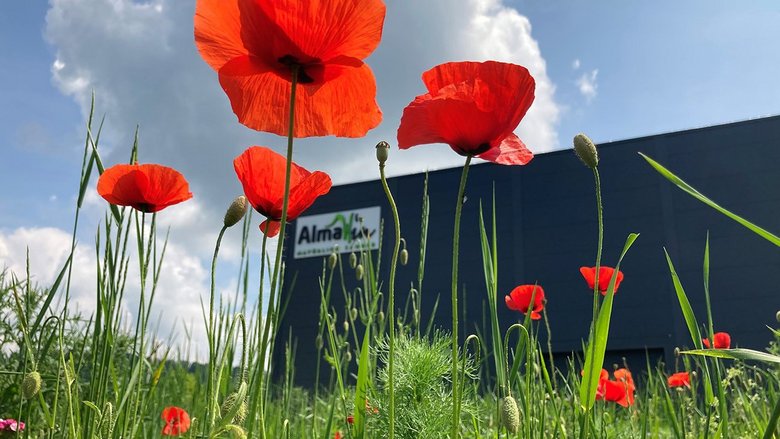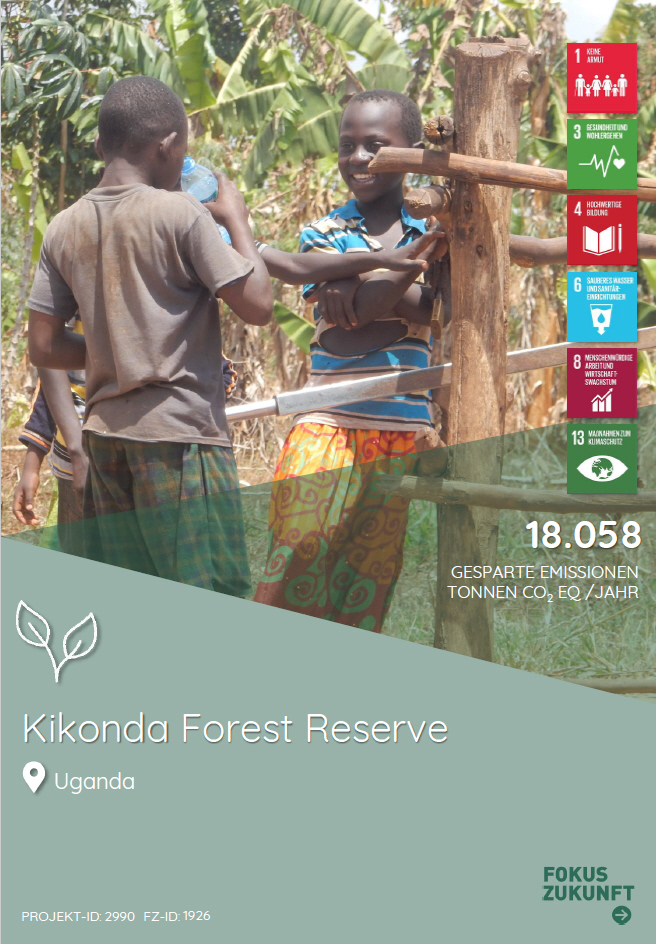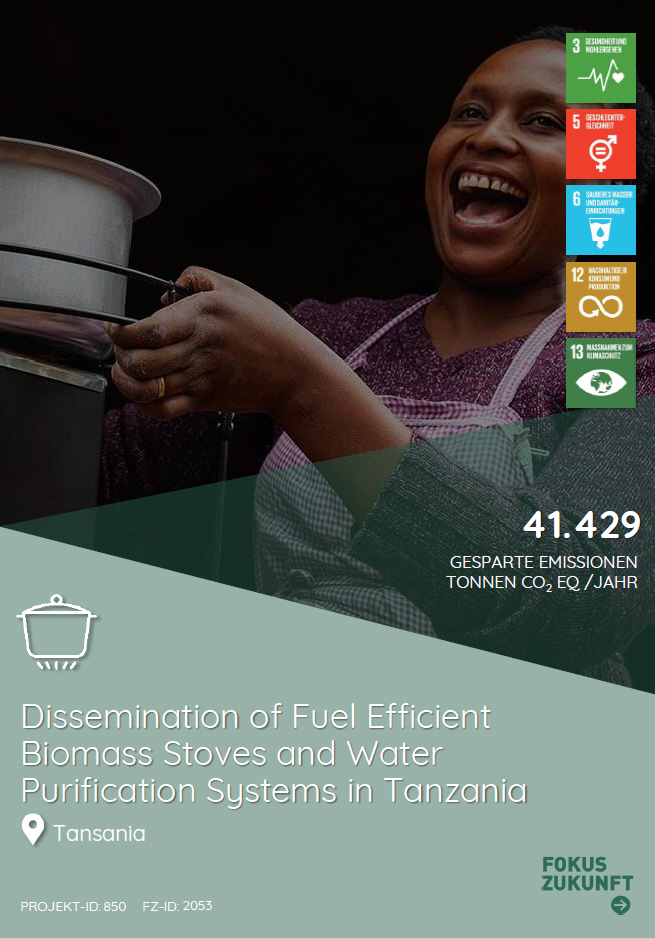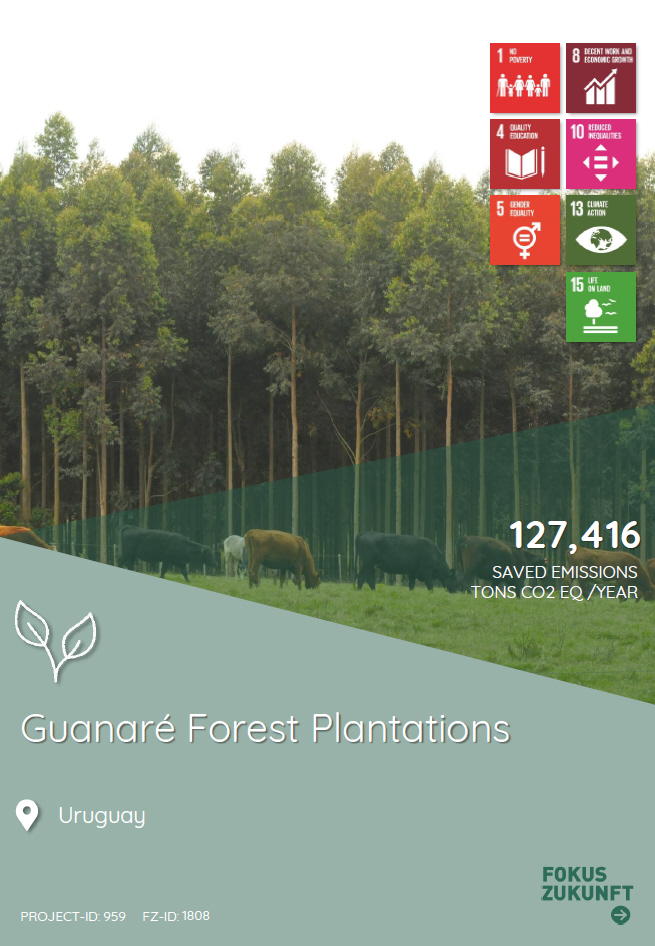
CO2 compensation - for a clean future!
The global community has been struggling for decades to reach agreements on improving the climate. It's high time we finally do something. Although, for years, AlmaWin has actively reduced its carbon footprint by using renewable energies, we regard it as our obligation to do even more. We are happy to announce that of this year (2021), we are a carbon-neutral company!
BASIC PRINCIPLES OF CO2 REDUCTION
The term "climate neutral" is currently the subject of heated debate, as it does not accurately reflect what a company is actually doing to actively contribute to improving our planet's carbon footprint. What is important here is that CO2 emissions are not simply offset, but that a key approach is to produce the product or service in as climate-friendly a way as possible from the outset. Afterwards, the remaining, unavoidable CO2 emissions can be compensated.
We have been committed to climate protection for almost 30 years
We have been producing ecological washing and cleaning products since 1993. Natural, readily biodegradable raw materials were already the initial basis for our ecological approach back then.
Our basic climate commitment:
- Products without petrochemicals, without synthetic dyes and fragrances,
- Concentrates that require less packaging
- Certified green electricity from hydropower (since 2010)
- In-house combined heat and power plant
- Recyclable product packaging made of 100 % waste plastic (since 2015) or FSC-certified/recycled paper and cardboard boxes
- Reduction of up to 80 % packaging material through the use of "Ökopacks"/refill bags
- Changeover to LED lighting in production (since 2019)
- Insulation through roof greening on our new building
- Runing an insect pasture to preserve biodiversity (beneficial insect meadow, butterfly meadow, since 2020)
our additional climate commitment:
- EMAS certification since 2017 (Eco-Management and Audit Scheme)
- Environmental Protection Management DIN ISO 14001 Standard
Why climate protection certificates?
Our commitment to further reduce our carbon footprint remains a constant concern, anchored in our environmental and quality management and – most importantly – in the hearts and minds of all of us.
In order to offset the remaining CO² emissions, we have decided to support various climate protection projects by purchasing emission certificates through our partner Fokus-Zukunft GmbH & CO KG. When selecting the projects, we placed particular emphasis on improving not only climate protection but also the socio-economic living conditions of the local people.
Why climate protection certificates?
Our commitment to further reducing our carbon footprint remains a constant concern, anchored in our environmental and quality management and - most importantly - in the hearts and minds of all of us.
The basic idea is to shape climate protection beyond the immediate sphere of influence (Scope 1 and Scope 2).
Scope 1 comprises the emissions for which our company is directly responsible and which are also controlled. It includes emissions from energy sources at the site, such as natural gas or heating oil, but also our own vehicle fleet. AlmaWin offsets the required heating oil with climate certificates and is gradually converting the vehicle fleet to more environmentally friendly variants. The acquisition of a photovoltaic system is planned for 2023.
Scope 2 includes indirect emissions, such as those caused by purchased electricity that is consumed by the company but not generated.
AlmaWin has been purchasing green electricity from hydropower since 2010.
In terms of packaging, AlmaWin relies on the use of recycled bottles and FSC-certified cardboard with a recycled content of 80% recovered paper and a partial content of grass-based cardboard.
AlmaWin had its corporate CO2 footprint calculated and offset the emissions with compensation certificates. The compensation was based on the previously performed greenhouse gas balancing, taking into account the operational system boundaries based on the Greenhouse Gas Protocol Corporate Standard: Scope1, Scope 2 as well as upstream Scope 3 emissions, excluding raw material purchasing.
In addition, AlmaWin is EMAS III audited. In the annual audits, the company proves each time anew that a continuous improvement of the carbon footprint is important to it and that it does not slacken in its efforts to become climate neutral on its own responsibility.
Through our partner Fokus-Zukunft GmbH & CO KG, we support various climate protection projects by purchasing emission certificates. When selecting the projects, we placed particular emphasis on ensuring that not only climate protection but also the socio-economic living conditions of the local people are improved.

Uganda Reforestation for biodiversity conservation
The Kikonda Forest Reserve reforestation project in western Uganda covers an area of 10,000 ha. By the end of 2016, over 10 million trees had already been planted on an area of around 8,000 ha. The practices are compatible with the FSC standard for sustainable forestry.
This creates jobs for around 600 people, who benefit from other advantages such as the provision of accommodation and medical care.
It also supports local schools and guides a long-standing program to increase agricultural productivity and improve water supplies.
Interspersed with the planted areas are areas that are protected as nature reserves to ensure natural habitat for native species.
Water management and soil fertility are carefully monitored to ensure the forest's continued existence.
The project supports other sustainability goals:
- No poverty through new jobs
- Health and well-being through free medical care
- Quality education - the project supports schools in the surrounding area
- Clean water and sanitation
- Decent work and economic growth
- Climate protection measures

Production of efficient cooking stoves and distribution of water filters in Tanzania
In this project, the goal is to reduce greenhouse gas emissions, curb deforestation, and improve air quality by manufacturing or importing charcoal and wood fuel efficient biomass stoves and water purification systems and distributing them to households and other users throughout Tanzania.
The project is working with the nonprofit coordinating agency EandCo Tanzania, among others, to contract local stove manufacturers and distributors who adhere to several basic principles. They sell the stoves and/or water purification systems only in Tanzania, and if there are exports, they do not register them as part of this project.
The high quality stoves are more efficient and durable than typical cooking methods in Tanzania. Manufacturing follows strict quality standards. They also use LifeStraw(R) family water filtration systems; a microbial water treatment system intended for spot use for routine use in low-income settings.
For more information click here
The project supports other sustainability goals:
- Health and well-Being: air pollutants are avoided
- Gender equality: Since women and children in particular are in the vicinity of the cooking areas, they are better protected by the cooking stoves
- Clean water and sanitation: The water filters can filter up to 18,000 liters of water. This is enough to supply a family of five with microbiologically clean water.
- Sustainable consumption and production: The users of the new stoves, thus save on fuel expenses, which improves the economic situation of each individual.
- Climate protection measures

Reforestation for CO2 storage from the atmosphere in Uruguay
The project in Guanaré covers a total of 21,298 hectares of land previously grazed by cattle, on which forest plantations have been established to produce high-quality, durable wood products and remove large amounts of carbon dioxide from the atmosphere.
The forests are based mainly on Eucalyptus grandis plantations managed by pruning and thinning two to three times to obtain large diameter logs suitable for the production of boards and veneers.
Practices are compatible with the FSC standard for sustainable forest management. Planted forests remove carbon dioxide from the atmosphere and store it in various carbon reservoirs (above and below ground biomass, soil, litter, non-tree vegetation, dead wood, and harvested wood products).
For more information click here
The project supports other sustainability goals:
- No poverty - the project creates almost 1000 new jobs.
- Quality education - secure and qualified jobs
- Gender equality: new employment opportunities and income-generating opportunities for women
- Decent work and economic growth
- Reduction of migration to the cities
- Climate protection measures
- Promotion of biodiversity in forest areas.